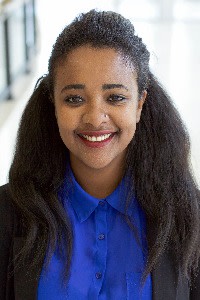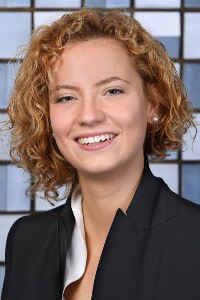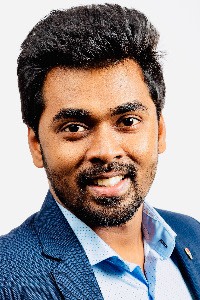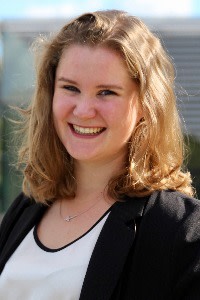What a masters in management did for me
Roula Khalaf, Editor of the FT, selects her favourite stories in this weekly newsletter.
Simera Negeri

Canadian. Queen’s University: Smith, Ontario. Master of International Business (double degree with Master of Global Management at University of Queensland, Australia), graduated 2020. Seeking opportunities, Canada.
Did anything surprise you about the MiM?
Part of me always assumed that going to the next academic level — from undergraduate to postgraduate — would just mean that it would be harder. But I was surprised to find that, while we were challenged, it was not about learning more difficult things or studying more. Rather, it was about shifting perspectives and methods of teaching to allow us to build upon what we had already learnt.
The masters was much more of an open environment, where professors did not teach at us, but discussed with us. They let us think for ourselves, with their guidance. I think that often, as students, we miss out on the opportunity to develop our own ideas or abilities because we are chasing grades. With the masters, I found that we were given more freedom to explore our potential.
Francesca Manganella

Italian. ESMT Berlin. Master’s in Management, graduates 2020. Intern in digital strategy and innovation, Adidas, Germany.
What was the most important lesson you learnt on the course?
I have learnt a lot. We are exposed to the most advanced management theories, which is invaluable, and I am already applying things in my internship.
However, I would say, the most important thing I learnt is soft skills. I had many chances to lead teams, present for teams or organise things for the entire school — all of which developed leadership. It trained me to work with people from different cultures and backgrounds: I had Italian classmates, but they might have been engineers before so there was still a difference.
And then I would also pick the exposure to innovation. I am always saying, ‘What can we change? Where is the future? What can we do differently?’ And I think that is because of the environment at ESMT: both my classmates and professors challenged me to think differently.
Krunali Shah

Indian. Indian Institute of Management, Ahmedabad. Two-year Postgraduate Programme in Management, graduated 2020. Investment Associate, A91 Partners, India.
Did the MiM prepare you for jobhunting?
It went a long way in instilling confidence to reach out to people. That helped me to make contacts outside the university and not only rely on campus placements.
I had some experience of finance and strategy through my education — I am a chartered accountant — and work experience at Boston Consulting Group. The course broadened my horizon to include subjects like economics, social and policy related subjects, and data analytics. This helped me go beyond knowing what I expected myself to know. I also met people who are highly driven and passionate about what they do and like, and go beyond a surface level of understanding. It inspired me to strive for a more in-depth understanding and to learn anything — this helped me a lot during my interviews.
Vamshi Krishna Grandhe

Indian. University of Sydney Business School. Master of Management, graduated 2019. Academic tutor, University of Sydney; programme manager intern, AI Australia.
What advice would you give people who are considering a MiM?
I would say a MiM is a great investment of time and money early in your career to improve employability and leap into entry- to mid-level management roles, irrespective of your education. I am from an engineering background: I majored in aerospace engineering, a niche but fascinating area. It is an opportunity to meet friends from across the world, learn new skills, build networks and work on real-world projects.
The MiM has broadened my career by exposing me to various facets of business management and forging connections across the world. On top of that, the course helped me develop holistically through experiences like being a student ambassador. So be open to opportunities, engage on campus and take initiatives. Get involved with the career services and give your best self in all your endeavours.
Eline Roomer

Dutch. Rotterdam School of Management, the Netherlands (and exchange at Esade, Barcelona, Spain). MSc International Management/Cems, graduated 2020. Sales development representative, Zendesk, Dublin.
Why did you choose Rotterdam?
I knew several people who were doing courses in Rotterdam, who’d had good experiences. I also knew that for my exchange I wanted to go to Barcelona or Copenhagen so the course gave me the opportunity to go abroad to good universities and start at a reputable institution too. I really liked the electives at Rotterdam. They have a masters in sustainability management and one in business information management and I was able to take some courses from those.
I particularly liked the electives. In general, I feel a masters in management is a lot about soft skills so it was good to have a few courses that focused on more technical skills as well.
Help us redesign our rankings
We are seeking help from prospective business students as we develop new digital tools and content to assist readers make the best educational choices.
If you are willing to take part in our research, please complete this survey, which should only take 10 minutes.
Comments